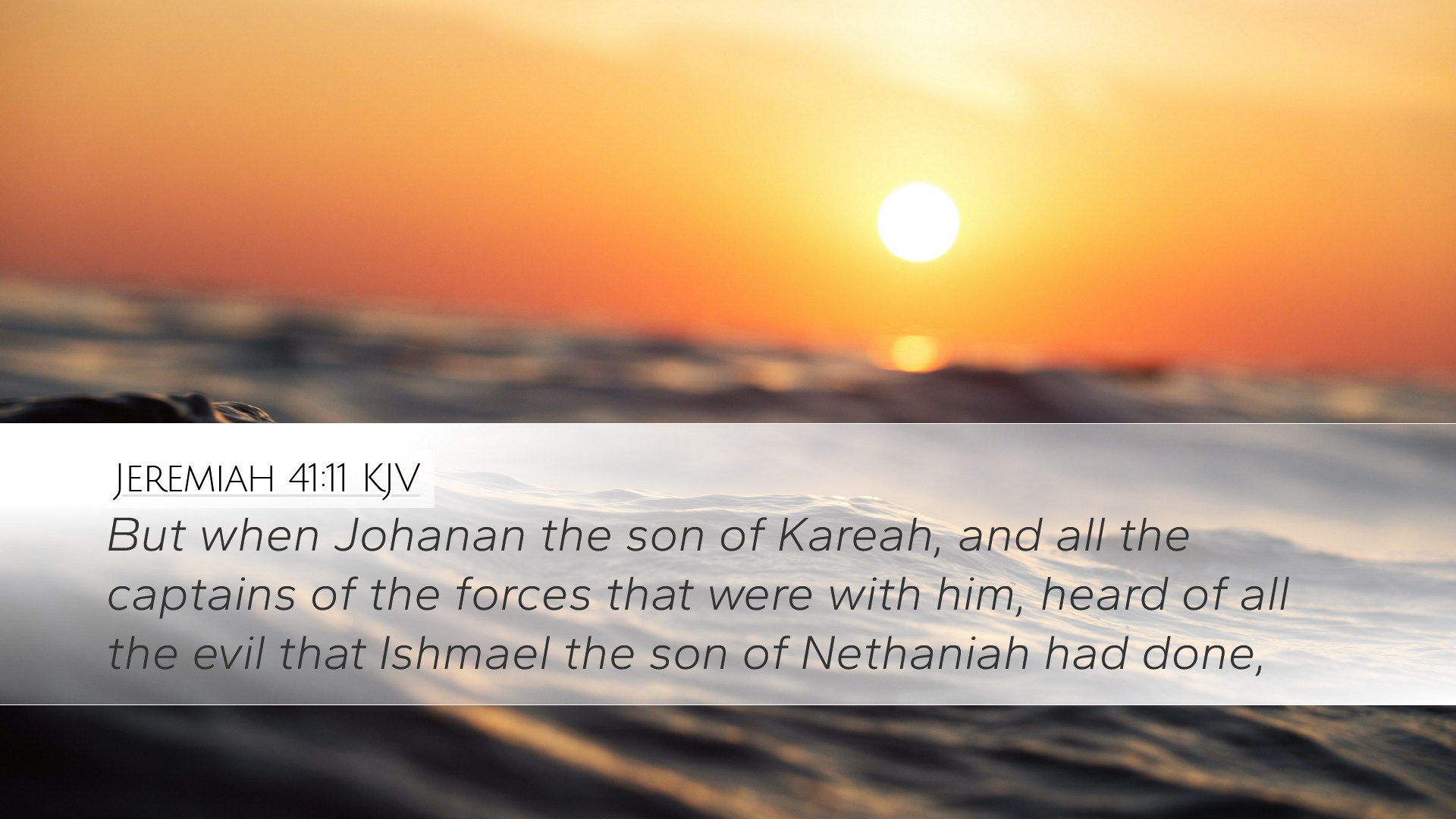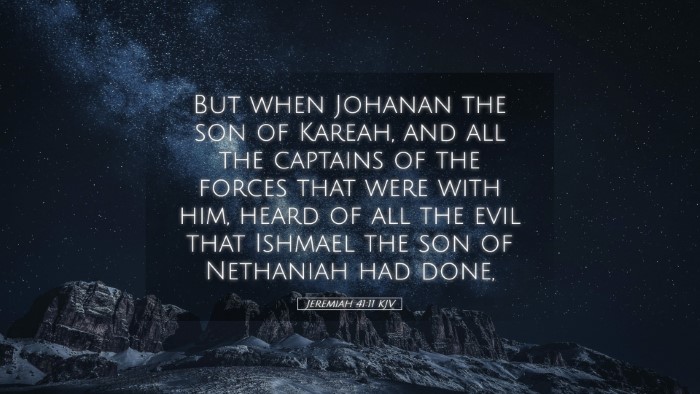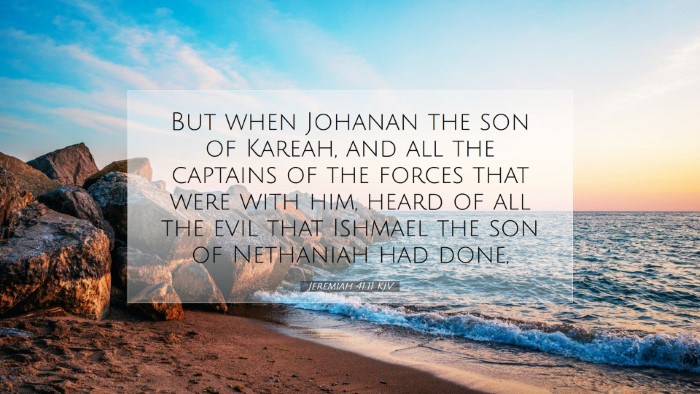Commentary on Jeremiah 41:11
Verse Context: Jeremiah 41:11 states, "But when Johanan the son of Kareah and all the captains of the forces that were in the field heard of all the evil that Ishmael the son of Nethaniah had done," This verse occurs in a narrative that depicts a period of turmoil after the Babylonian conquest, where various factions were vying for power among the remnant of the Jewish people.
Historical Background
This verse situates itself in a critical historical moment. The people of Judah had experienced the devastation of exile, and with the death of Gedaliah, the appointed governor, chaos erupted. Johanan, a leader of the remnant, becomes aware of the atrocities committed by Ishmael, who killed Gideon and many others under Gedaliah's administration.
The Characters Involved
- Johanan the son of Kareah: A military leader who represents a surge of resistance against violence and tyranny.
- Ishmael the son of Nethaniah: A figure of betrayal; he symbolizes the divisions and conflicts that arose post-exile.
- Gedaliah: The governor whose assassination instigates the unfolding crisis and sets the stage for internal conflicts.
Thematic Insights
1. The Nature of Evil: The actions of Ishmael are described as 'evil' indicating a moral failing not only in his individual conduct but also a national moral crisis. This invites theological reflection on the nature of human depravity and the consequences of sin.
2. Leadership and Responsibility: Johanan's response illustrates the responsibilities of leadership in times of crisis. He mobilizes forces not out of personal ambition but rather to restore order and stem further bloodshed, highlighting the duty of leaders in protecting their communities.
3. Reaction to Crisis: The swift reaction by Johanan and his captains emphasizes the necessity for decisive action in the face of moral wrongdoing. It is imperative for leaders and communities to rise against evil, embodying a proactive stance rather than passive acceptance.
Hermeneutical Considerations
Textual Interpretation: The urgent response from Johanan is portrayed as a form of justice, reflecting a need for collective memory and identity. The interpretation of this response is influenced by the understanding of justice within Hebrew Scripture, which often necessitated physical acts to maintain order.
Cultural Significance: The social dynamics between the different factions post-exile echo the continual struggle for identity and faith among the Israelites. The political landscape during and after the exile resonates with contemporary discussions on leadership, governance, and ethical practices within communities of faith.
Reflections from Prominent Commentators
Matthew Henry: Henry emphasizes the providence of God in the affairs of men, suggesting that the tumultuous events in Jerusalem were not outside of divine control. He observes that the acknowledgment of evildoers such as Ishmael serves as a reminder of the necessity of righteous leadership.
Albert Barnes: Barnes reflects on the implications of moral choices in leadership, noting that the collapse of Gedaliah's administration presents a dire warning against trust in ungodly alliances. He stresses the importance of discernment in leadership, encouraging the faithful to seek divine guidance amidst confusion.
Adam Clarke: Clarke discusses the ramifications of Ishmael's actions for the Jewish remnant, examining how such internal strife complicates their return to normalcy. He highlights the ongoing conflict as indicative of the broader spiritual malaise experienced by Israel.
Practical Applications
The events of Jeremiah 41:11, while rooted in history, resonate profoundly today as they offer important lessons for pastors, students, and scholars alike:
- Awareness of Threats: Today’s leaders must be vigilant against internal and external threats that could lead to spiritual or community unrest.
- Mobilizing Action: The need for action in confronting injustice should prompt contemporary faith communities to engage actively in addressing societal evils.
- Cultivating Righteous Leadership: Aspiring leaders must prioritize ethical leadership grounded in scripture, serving as stewards for their communities.
Conclusion
Jeremiah 41:11 serves as more than a historical record; it is a profound commentary on leadership, morality, and divine providence. The insights from various public domain commentaries illuminate the text, providing a multifaceted understanding that continues to challenge and inspire believers to seek justice, act with integrity, and lead with a heart attuned to God's will.


